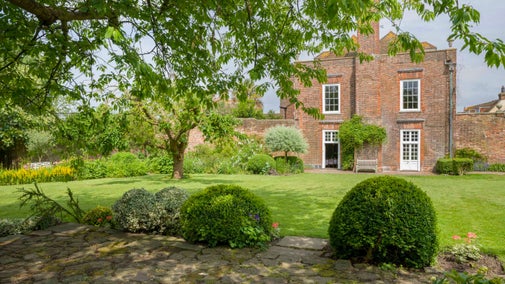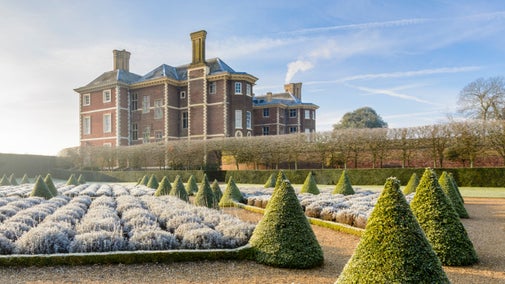
Discover more at Lamb House
Find out when Lamb House is open, how to get here, the things to see and do and more.

Steeped in literary history, sitting at the heart of the historic town of Rye, this red brick Georgian house has decades of stories to tell inside its walls. The home of some of the most famous writers of their time, Henry James and E.F. Benson, along with later tenants such as Rumer Godden, it is easy to see why this house became a popular writer’s retreat. Imagine life in the early 1900s, with inspiring views from the windows, and comfortable furnishings, helping to fuel their creativity.
In 2016 a three-year project began, following a period where the property had been tenanted and only partially open. The project involved opening previously closed rooms and spaces, particularly on the first floor, and showcasing the stories it contains and the writing it has inspired. Historic panelling in the oak parlour and the King’s Room was restored, the collections re-displayed, and a reinterpretation of how the stories of Henry James and E.F. Benson were told.
The King’s Room on the first floor acquired its name when George I [sic] was forced ashore by a storm and sought shelter for several nights there. Lamb House was the home of the Mayor and deemed the most suitable dwelling to accommodate the King, who was given its finest room.
This room was also used by Henry James as a guest room (a tradition E.F. Benson continued). Unfortunately, there are no archival images showing how the room was furnished during James’ tenure, although the 18th-century panelling and corner chimney piece survive.

A visit to Lamb House must include the Green Parlour or Room, which was used by Henry James and E.F. Benson as a writing room. Later this tradition was continued by National Trust tenants Montgomery Hyde, Rumer Godden and Brian Batsford Cook.
The garden room, where James and Benson enjoyed writing during the summer, was destroyed in 1940 during the war. The Green Room therefore, retaining some of its historic features, is the only space at Lamb House that is linked to James’ work. James wrote his three major novels in this room, The Wings of the Dove (1902), The Ambassadors (1903) and The Golden Bowl (1904), along with many others.
The White Parlour was historically two separate guest bedrooms, and through archaeological research, we believe that the layout was altered by the National Trust following the post bomb-damage restoration of the house in the 1950s.

Find out when Lamb House is open, how to get here, the things to see and do and more.
Discover an evocative garden tucked away behind the walls at Lamb House. It has an intimate, tranquil feel with borders packed full of flowers, a vegetable garden and shady trees.

Find out about this Georgian house and walled garden nestled in the heart of Rye. Discover the decades of inspiration it gave literary greats such as Henry James and E.F. Benson.

Historic houses and buildings are full of stories, art and collections. Learn more about their past and plan your next visit.

From the art gallery at Petworth, to a cosy Arts and Crafts home at Standen, you'll be amazed at the variety of houses and unusual buildings to explore in Sussex.
